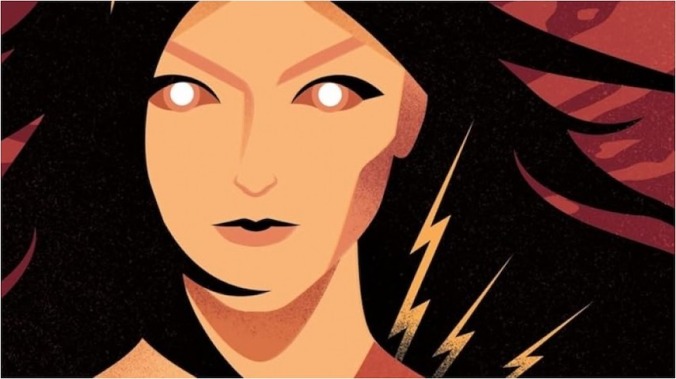Hera Gives the Queen of the Gods Her Due

Jennifer Saint is known for writing about Greek mythology, though her books tend to focus on lesser-known, underserved, or overshadowed female characters from across the pantheon of gods and heroes. Her latest effort, Hera, breaks that pattern by turning to the most powerful and likely well-known of all Greek goddesses and attempting to tell the story of the Queen of Olympus herself.
The thing about Hera, though, is that while she appears in many famous Greek myths and stories, including the labors of Hercules, the voyage of the Argonauts, the Judgement of Paris that precipitates the Trojan War, and Homer’s Illiad, she’s generally presented in a negative light. Hera, to put it bluntly, is a bitch. Goddess of marriage and childbirth, she spends most of her immortal life feuding with her husband’s seemingly endless string of mistresses and lovers, tracking down his illegitimate progeny, and plotting vengeance against them all. She’s petty and jealous, aloof and cruel. And almost all of the myths that prominently feature Hera are stories that are really about Zeus, offering her the chance to do little more than victim-blame women who catch her husband’s eye.
Saint’s retelling works to change all that, adding much-needed nuance and depth to a figure that has long between portrayed in the shallowest of terms. Her Hera is still jealous and paranoid, and generally awful to those around her, even and perhaps most especially her children. But Hera takes great pains to provide the necessary context for her behavior and deepen her emotional responses to something that feels much less straightforward than simple jealousy. This Hera is furious, often just incandescent with rage, constantly rattling the bars of the gilded cage that is Olympus. But while Hera has always been known for her wrath, Saint deftly fleshes out the reasons behind her anger adding layers and complexity until it becomes glaringly apparent that there’s so much more going on there than a philandering spouse.
Hera begins, well, at the beginning. Almost. The book opens with the fall of the Titans, when Zeus and the other Olympians overthrew their father Cronus, and the other age-old beings who fought alongside him. Triumphant, they begin building the palace known as Mount Olympus, a place where they are all meant to rule as equals, seated on twelve identical thrones. It probably shouldn’t surprise anyone that this celestial harmony is short-lived. Almost immediately, Zeus begins assigning various realms to his siblings: Poseidon gets the sea, Hades the underworld, Hestia, the hearth, and Demeter the harvest. Hera essentially gets sexually assaulted into marrying Zeus. It’s not a great trade-off.
- Curated Home Page Articles By Test Admin October 21, 2025 | 3:10pm
-

- Curated Home Page Articles By Test Admin October 21, 2025 | 2:57pm
- Urls By Test Admin October 21, 2025 | 2:57pm
- Curated Home Page Articles By Test Admin October 21, 2025 | 2:55pm
-

-

-

-

-

-

-

-

-

-

-

-

-

-

-

-

-

-

-

-

-

-

-

-

-

-

-

-

-

-

-

-

-

-

-




































